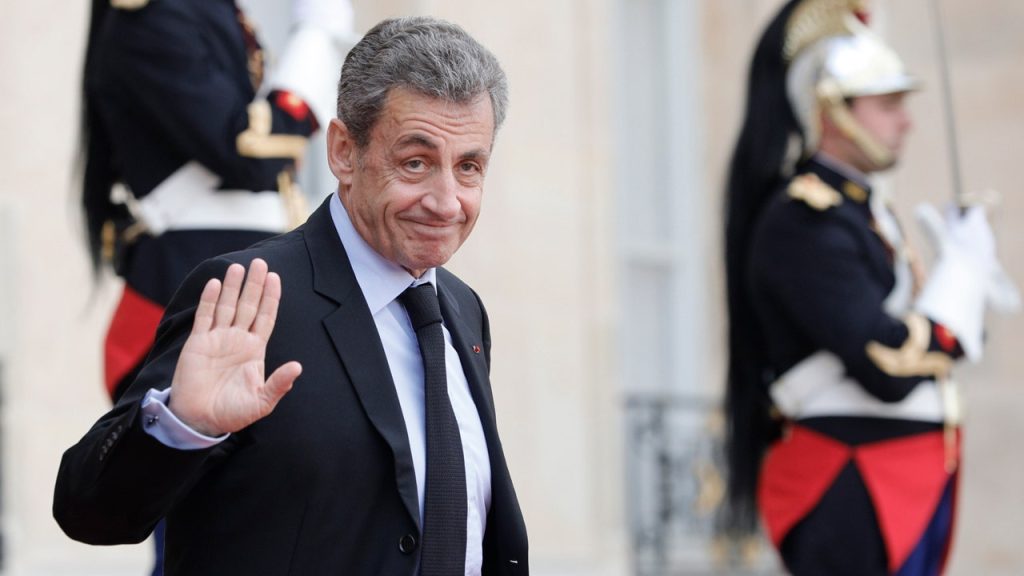The Final Verdict: Sarkozy’s Corruption Conviction Upheld
Former French President Nicolas Sarkozy’s legal battles have reached a critical juncture with the nation’s highest court, the Court of Cassation, upholding his conviction for corruption and influence peddling. This landmark decision marks the first time in modern French history that a former president has received a prison sentence for actions committed during their term. The court’s affirmation solidifies the guilty verdicts handed down by both a Paris court in 2021 and an appeals court in 2023, concluding a legal saga that has spanned years and captivated the nation. Sarkozy, who served as president from 2007 to 2012, faces a one-year prison sentence, which he is expected to serve under house arrest with electronic monitoring. This leniency is standard practice in France for sentences of two years or less. While he retired from public life in 2017, Sarkozy remains an influential figure in French conservative politics.
The "Bismuth" Affair: Unveiling a Network of Influence
The case revolves around a series of intercepted phone conversations from February 2014, revealing a clandestine network of communication between Sarkozy, his lawyer Thierry Herzog, and magistrate Gilbert Azibert. At the time, Sarkozy was under investigation for campaign finance irregularities related to his 2007 presidential bid. Investigators discovered that Sarkozy and Herzog were using secret mobile phones registered under the alias "Paul Bismuth" to discuss the case. The wiretapped conversations suggested that Sarkozy and Herzog offered Azibert a prestigious position in Monaco in return for confidential information about a separate legal case involving Sarkozy. Although Azibert never received the promised position and the case Sarkozy sought information about was eventually dropped, prosecutors argued that the mere offer of a quid pro quo constituted corruption under French law.
Sarkozy’s Vehement Denial and Appeal to the European Court
Sarkozy has consistently maintained his innocence throughout the legal proceedings, vehemently denying any malicious intent behind his offer to assist Azibert. He has criticized the court’s decision as a profound injustice and expressed his determination to clear his name. In a statement released on X (formerly Twitter), Sarkozy declared his intention to appeal the case to the European Court of Human Rights, hoping to secure a condemnation of France for what he perceives as an unfair trial. While accepting the court’s decision and agreeing to comply with the sentence, Sarkozy’s lawyer, Patrice Spinosi, emphasized his client’s unwavering commitment to fighting the conviction.
A Precedent-Setting Case with Far-Reaching Implications
This case has significant implications for French politics and the judiciary. It underscores the principle that even former presidents are not above the law and can be held accountable for their actions. The conviction serves as a powerful reminder of the importance of transparency and ethical conduct in public office. While Sarkozy’s predecessor, Jacques Chirac, was also convicted of misuse of public funds during his time as Paris mayor, Sarkozy’s case is distinct as it involves actions committed during his presidency and carries a custodial sentence, albeit one served under house arrest.
A Complex Legal Landscape: Other Cases Loom Large
The "Bismuth" affair is not Sarkozy’s only legal entanglement. He is facing another trial scheduled for next month in Paris, accused of accepting millions of dollars from the late Libyan dictator Muammar Gaddafi to illegally finance his 2007 presidential campaign. This allegation adds another layer of complexity to Sarkozy’s legal woes and further intensifies the scrutiny surrounding his past actions. The upcoming trial will undoubtedly attract significant public attention and could have further consequences for Sarkozy’s reputation and political legacy.
The Road Ahead: Legal Battles and a Legacy in Question
As Sarkozy prepares for his appeal to the European Court of Human Rights and his upcoming trial related to Libyan campaign financing, the shadow of these legal battles continues to loom large over his legacy. While his conviction for corruption and influence peddling marks a significant low point in his career, it also serves as a cautionary tale about the perils of power and the importance of upholding the rule of law. The final chapters of Sarkozy’s legal saga are yet to be written, and the outcome of these ongoing proceedings will undoubtedly shape public perception of his presidency and his place in French history.

